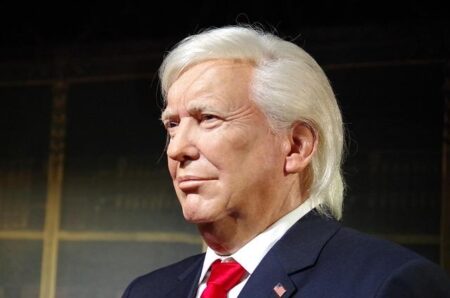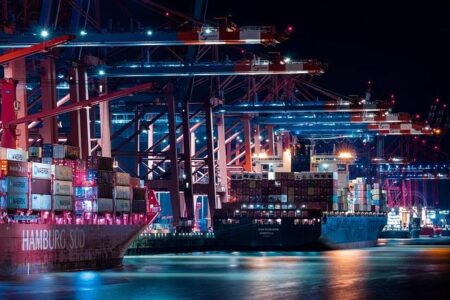Following daring Ukrainian strikes that devastated Russia’s vital optical fiber plant, Moscow is now relying heavily on Chinese imports to keep its telecommunications network running-highlighting the growing economic bond between the two nations amid the ongoing conflict
Browsing: economic impact
Russia’s war on Ukraine is leading many women to delay or even abandon plans for motherhood, experts caution. This profound shift in demographics may trigger long-term economic ripple effects throughout the region, CNBC reports
Russia’s shift toward a war-driven economy is creating intense strain on its long-term growth, diverting vital resources from innovation and the everyday needs of its people. Experts warn that this escalating militarization risks pushing the country into economic stagnation and greater isolation from the global community
Ford warns of mounting pressure on Trump following SCOTUS decision to strike down tariffs. The automaker says the ruling signals “walls closing in,” intensifying challenges for the former president’s trade policies
Ford sounds the alarm as pressure mounts on Trump after SCOTUS strikes down tariffs. The automaker warns this ruling marks “walls closing in,” escalating hurdles for the former president’s trade agenda
JPMorgan’s latest analysis reveals that although Trump’s tariffs are squeezing China, they come with a steep price-burdening American small businesses with soaring costs and complicated supply chains
Shadow Resources and Northern Australia Minister Susan McDonald has responded to the US Supreme Court’s decision to overturn President Trump’s tariffs, highlighting the powerful impact this ruling could have on opening new trade and investment opportunities for Australian businesses
The South Dakota Cattleman’s Association has raised serious doubts about former President Trump’s efforts to boost Argentine beef exports, questioning if this move will genuinely help curb the skyrocketing U.S. beef prices, reports KOTA Territory News
Germany’s “China Shock,” revisited by the Rhodium Group, reveals exciting new insights into how China’s economic surge is continuously transforming German manufacturing. This study highlights powerful shifts in trade, supply chains, and the competitive landscape of the industry
Rising matcha prices are becoming an unexpected hurdle for the Reserve Bank of Australia (RBA), making it harder to tame inflation as skyrocketing demand outpaces supply amid growing global cost pressures
China has finally ended its longest-ever boycott of U.S. soybeans, resuming imports after months of silence. However, shipments remain at just 1% of previous volumes, revealing a careful and hesitant return to trade
Opinion | Trump’s trade policies targeting Canada have unexpectedly struck a blow to Michigan’s economy, revealing the far-reaching impact of tariffs on U.S. manufacturing and cross-border trade, according to The Washington Post
Argentina’s seafood exports are navigating choppy seas as delays in the EU-Mercosur trade deal block market access, ramping up pressure on the industry amid fierce competition and growing regulatory hurdles
Russia’s legendary Ural motorcycles are now roaring to life on assembly lines in China, a daring move sparked by crippling Western sanctions that struck the original factory hard. This bold transition guarantees that these iconic bikes will keep hitting the road, no matter the geopolitical storms ahead
Japan’s bond market turmoil is sending shockwaves through global finance, igniting shifts in interest rates and rattling investor confidence worldwide. Understanding the full impact of this unfolding drama is essential, as it holds the potential to reshape economic policies and markets far beyond Asia
Bank of Canada Governor Tiff Macklem warns that if the U.S. Federal Reserve loses its independence, it could set off significant ripple effects for Canada-disrupting trade, rattling exchange rates, and putting economic stability at risk
The Indian rupee soared against the dollar, driven by a softer U.S. currency and a wave of positive market sentiment sparked by rising optimism over the EU-India trade pact, Reuters reports. Investors are buzzing with confidence, eyeing exciting trade opportunities on the horizon
Russia’s fuel oil exports to Asia faced a sharp decline in early 2026, as persistent Western sanctions continue to disrupt established trade routes, Reuters reports. Industry experts highlight dwindling demand and growing logistical hurdles as major forces squeezing the flow of shipments even more tightly
Cyclone Harry tore through southern Italy with relentless force, leaving a staggering $2 billion in damage in its wake. As communities face widespread flooding, power blackouts, and crumbled infrastructure, authorities are racing against time to navigate the daunting path toward recovery
In 2026, Russia faces a fierce economic storm as relentless sanctions, collapsing oil revenues, and growing internal unrest push its financial system to the brink, casting a dark shadow over the nation’s economic future, reports kyivpost.com
Indian airline IndiGo experienced a dramatic 75% plunge in profits after widespread flight cancellations, resulting in a staggering $63 million loss, Reuters reports. This major setback highlights the ongoing operational challenges facing India’s largest carrier




















